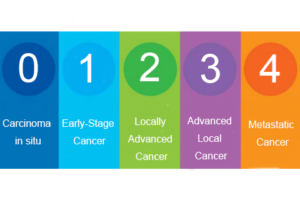
The Rising Trend of Cancer in Younger Populations: The Crucial Role of RGCC Personalized Cancer Testing
In recent years, the incidence of cancer among younger populations has been increasing at an alarming rate. More individuals in their 20s, 30s, and 40s are being diagnosed with various forms of cancer. Factors such as lifestyle changes, environmental pollution, chronic stress, and genetic predisposition are contributing to this trend. However, conventional cancer screening methods are primarily designed for older adults, leaving younger individuals without regular early detection opportunities. As a result, cancers in younger patients are often diagnosed at later stages, reducing the chances of successful intervention. RGCC personalized cancer testing offers a groundbreaking solution by detecting circulating tumor cells (CTCs) and cancer stem cells (CSCs) in the blood, allowing for early detection and providing personalized care strategies. This advanced technology is particularly valuable for younger populations, enabling proactive cancer prevention, early intervention, and tailored management plans.









